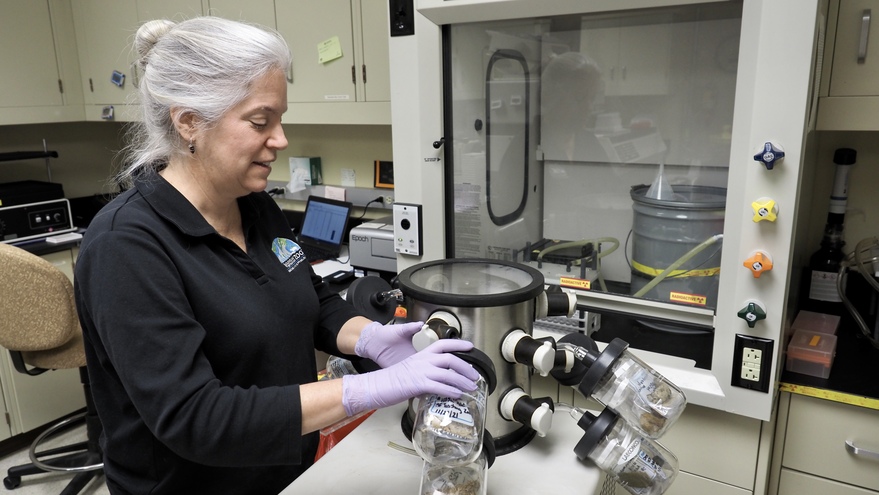ASK THE EXPERT: What is a Veterinary Epidemiologist?
Posted on Monday, September 12th, 2022
A. A veterinary epidemiologist is a vet who focuses on the health of animal populations
- Dr. Pam Dennis, Veterinary Epidemiologist, Cleveland Metroparks Zoo

Cleveland Metroparks Zoo is fortunate to have a veterinary epidemiologist on staff. It is a testament to how dedicated the Zoo is to research and ensuring animals are well cared for at our Zoo, and zoos around the country.
Veterinary Epidemiologist Dr. Pam Dennis doesn't work with single animals, but looks at animals at the population level. "If we find there are issues with a certain species such as heart disease in gorillas or gastritis in cheetahs, I am able to investigate it, figure out the underlying causes, and find out how to prevent it."
Figuring out the reasons behind certain health issues is like solving a puzzle. Dr. Dennis says it requires a lot of collaboration, and fortunately the team at the Zoo works very well together.
"If we find there are issues with a certain species such as heart disease in gorillas or gastritis in cheetahs, I am able to investigate it, figure out the underlying causes, and find out how to prevent it."
A great example of this collaboration is investigating digestive issues with our cheetahs. Animal keepers trained cheetahs to do voluntary blood draws so Dr. Dennis and the Conservation Science staff could examine biomarkers in their blood and collect data on things like cholesterol and glucose metabolism. The team worked together to change how often and how much the cheetahs eat - moving from eating once a day to twice a week (more similar to how cheetahs eat in the wild). Keepers noticed activity levels increased, and Mohawk and Chimba patroled the habitat more often. "Their cholesterol went down too - and that's a good thing," says Dr. Dennis.
Zoo News 2.0: Cheetah research project
As projects like this continue, our team is able to share the data with other zoos so they can benefit from the research and contribute to the data we have collected. On a research level, Cleveland Metroparks Zoo benefits greatly by having a veterinary epidemiologist on staff.


